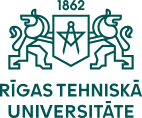
|
|
Projekta nosaukums:
|
Ilgtspējīga labklājības uzņēmējdarbība lauksaimniecības dažādošanai - SWEDA
|
|
Projekta īsais nosaukums:
|
SWEDA
|
|
Vienošanās par projekta īstenošanu numurs:
|
2020-1-IT02-KA203-079927
|
|
RTU Projektu reģistra numurs:
|
4494
|
|
Struktūrvienība:
|
Vides aizsardzības un siltuma sistēmu institūts
|
|
Projekta administrētājs:
|
Vides aizsardzības un siltuma sistēmu katedra
|
|
Finansējošais fonds:
|
ERASMUS+
|
|
RTU loma projektā:
|
projekta partneris
|
|
Statuss:
|
Noslēdzies
|
|
Projekta uzsākšanas datums:
|
01.09.2020.
|
|
Projekta noslēguma datums:
|
31.08.2023.
|
|
Finansējuma piešķīrēja nosaukums:
|
Education, Audiovisual and Culture Executive Agency
|
|
Projekta zinātniskais/saturiskais vadītājs:
|
Francesco Romagnoli |
|
Projekta vadītājs administratīvajā jomā:
|
Terēza Bezručko |
|
Projekta kopējais finansējums:
|
|
€ 386.408,00, t.sk. 100% ERASMUS+ līdzfinansējums |
|
Projekta kopsavilkums:
|
|
SWEDA will promote innovative entrepreneurial initiatives aimed at promoting wellbeing in rural areas by addressing demographic-social, economic and environmental aspects, and focusing on the ability of the agricultural sector to create wellbeing through the production of complementary goods and services with a view to sustainability. |
|
Projekta laikā tiks īstenotas sekojošas aktivitātes:
|
.• - Circular Economy, which is an economy designed to regenerate itself;
• - Bioeconomy, an economy which uses biological resources, coming from land and sea, as inputs for energy, industrial, food and feed production.
• - the Sustainable Development Goals of Agenda 2030, particularly n. 8, good employment and economic growth, n. 12, sustainable consumption and production, and n. 15, sustainable use of land.
a. Promoting an exchange of good practices at EU level on social, animal and environmental welfare in rural areas
b. Developing a multidisciplinary and integrated pedagogical framework for the improvement of higher education curricula related to agriculture, EQF 6
c. Producing a course combined with a strong project-based approach to enhance the entrepreneurial skills of higher education students.
d. Training 10 students enrolled in master degrees or doctoral students from each project country (30 in total) who will become a proactive factor in the change of local rural communities in terms of sustainable and integrated welfare.
e. Dissemination and exploitation of results with the hypothesis of studying a Joint Master Degree, Summer School, to ensure the sustainability of the project beyond its duration.
f. Contributing to the achievement of SDGs in line with the EU benchmarks for agricultural sector as an input to the sustainable well-being of rural areas.
g. The transnationality of the project guarantees the comparison between different national realities in which different practices of circular economy, social agriculture and animal welfare were developed. This should ensure more extensive training courses and a training better adapted to a European context. |
|
Sadarbības partneris:
|
|
|
|
Publicēts RTU mājas lapā:
|
01.09.2020. |

